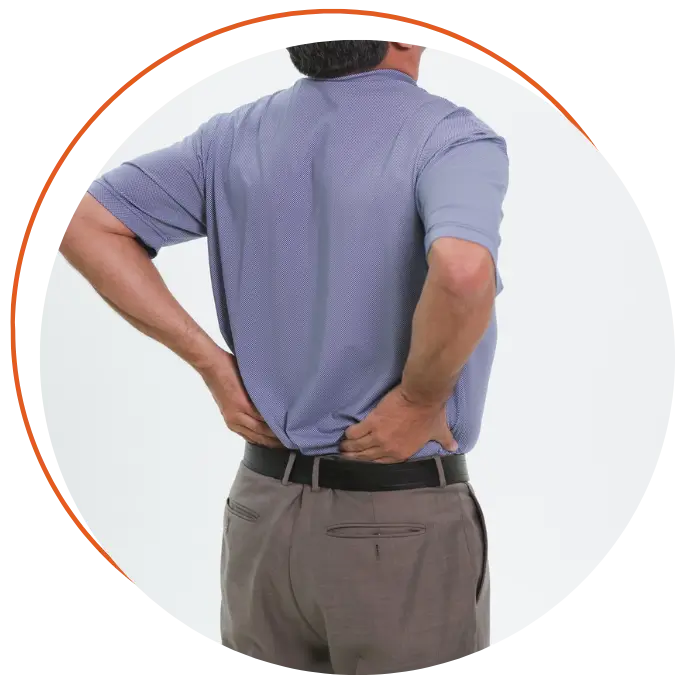What Is Degenerative Disc Disease?
Degenerative disc disease is a term used to describe the changes in your spinal discs as you get older. Spinal discs are soft, compressible discs that separate the interlocking bones (vertebrae) that make up the spine. The discs act as shock absorbers for the spine, allowing it to flex, bend, and twist. Unfortunately, age, wear and tear can lead to changes in the discs’ structure and function.
Although ‘disease’ can imply a progressively worsening state, this condition often stabilizes or improves with proper treatment. If you’re experiencing spine pain from degenerative disc disease, it’s time to begin your journey to experiencing relief.
What Are My Treatment Options For Degenerative Disc Disease?
While degenerative disc disease is not reversible, there are several treatment options available to manage symptoms and improve quality of life. The treatments available to you will be dependent on how severe your condition is, the symptoms you’re experiencing, and your medical history. Often, our team will recommend non-surgical treatment options first, as the vast majority of patients with degenerative disc disease can be treated without surgery.
Often, our team will recommend non-surgical treatment options first. This could include:
Physical Therapy & Chiropractic Manipulation: A tailored exercise program designed by a physical therapist can strengthen the muscles supporting the spine, improve flexibility, and alleviate pressure on the affected discs.
Injections: Epidural steroid injections or nerve blocks may be recommended to provide temporary relief from pain and inflammation.
Lifestyle Modifications: Maintaining a healthy weight, practicing good posture, and avoiding activities that exacerbate symptoms can help manage DDD.
Medications: Over-the-counter pain relievers such as nonsteroidal anti-inflammatory drugs (NSAIDs) can help alleviate pain and reduce inflammation. In some cases, prescription medications or muscle relaxants may be recommended.
If you’re experiencing spine pain then it’s time to begin your journey to experiencing relief. To receive a medical diagnosis and treatment specific to your needs, reach out to our team today for an initial consultation.
What Are The Symptoms of Degenerative Disc Disease?
The symptoms of degenerative disc disease can vary depending on the severity and location of the affected discs. Common symptoms include:
Chronic Back Pain: Persistent pain in the lower back or neck is a hallmark symptom of DDD. The pain may worsen with certain movements or activities.
Radiating Pain: Pain may radiate to the buttocks, thighs, or arms, depending on the location of the affected discs. This pain can be sharp or dull and may be accompanied by tingling or numbness.
Muscle Weakness: Weakness in the muscles surrounding the affected area can occur, leading to difficulty with activities such as lifting or standing for extended periods.
Stiffness: Stiffness and reduced flexibility in the spine are common complaints among individuals with DDD.
Pain Relief with Rest: Many people with DDD find that their pain improves with rest or changes in position, only to worsen again with activity.
Frequently Asked Questions About Spinal Conditions
Is degenerative disc disease serious?
Degenerative Disc Disease is not life threatening, but if left untreated, can lead to debilitating pain, permanent damage, and serious conditions such as spinal osteoarthritis, herniated discs, spinal stenosis and potentially paralysis.
What will happen if I call PPI?
Our team is on hand to help – we can get you scheduled for a consult as soon as the same week.





